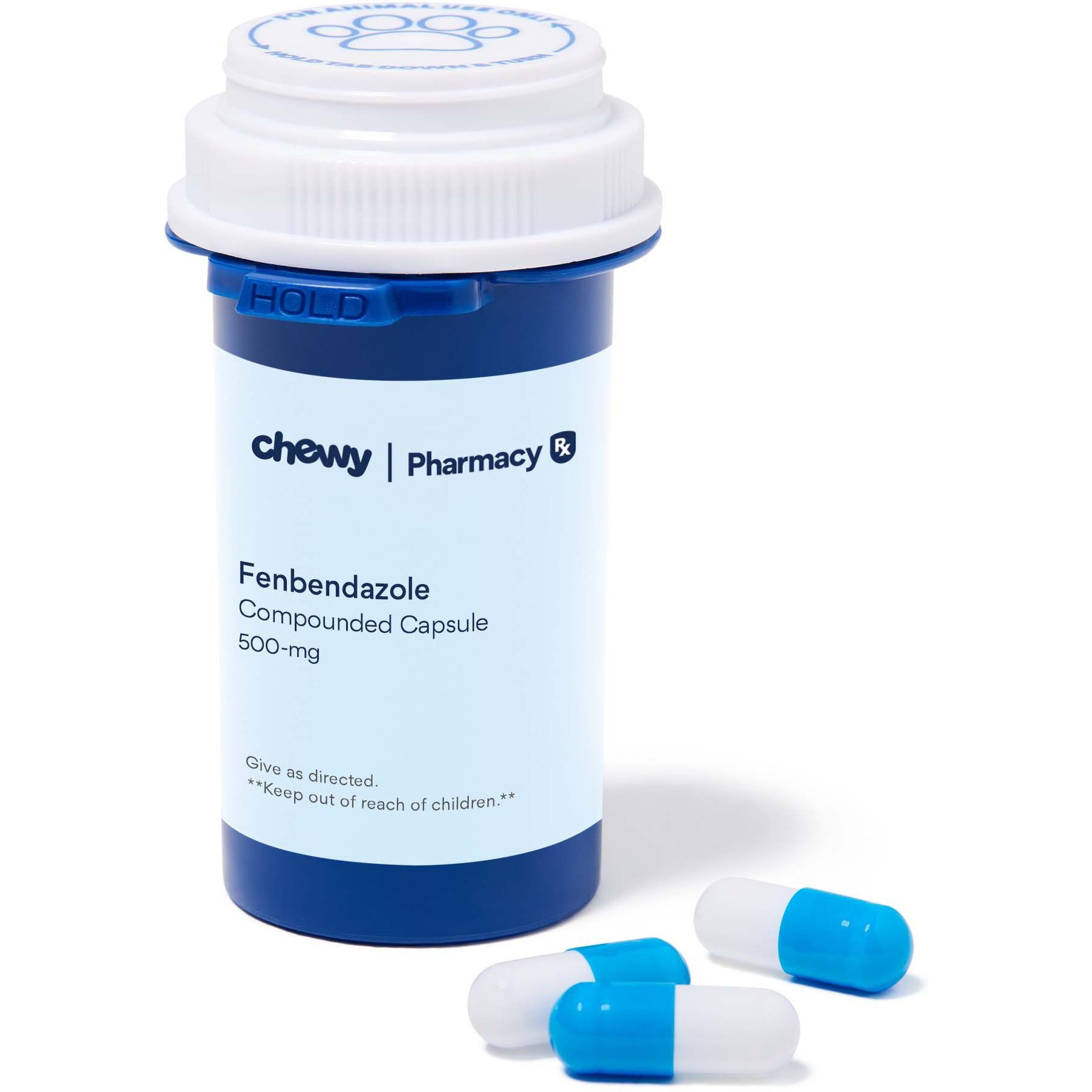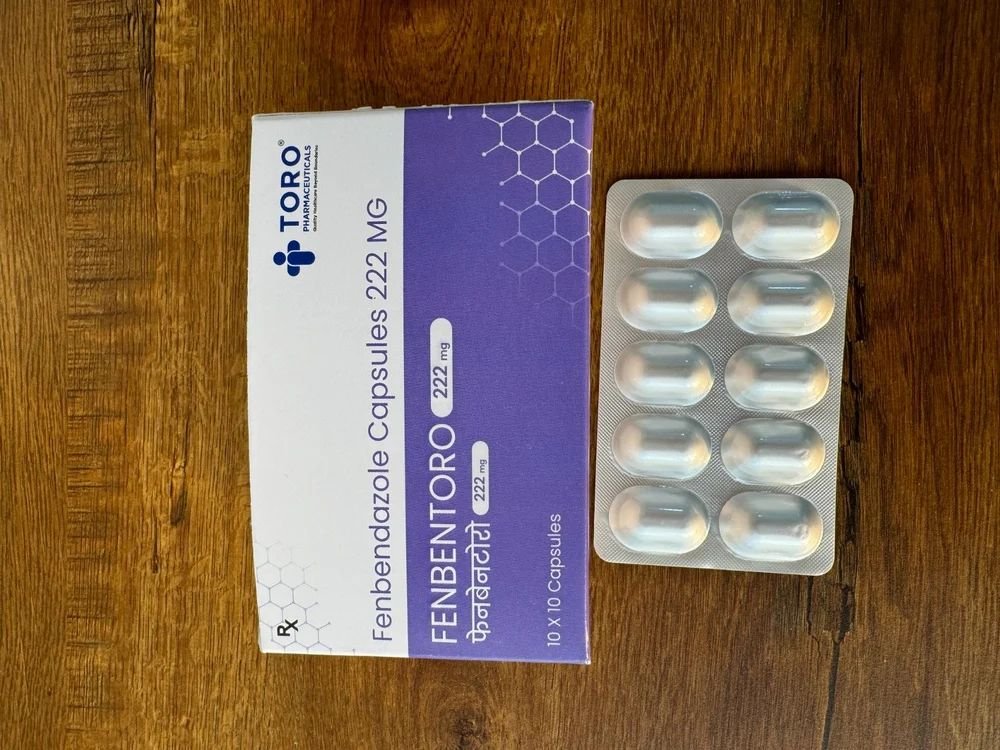fenbendazole: Everything You Should Know for Pet Owners
All You Required to Find Out About Fenbendazole and Its Uses in Pet Care Solutions
Fenbendazole is an extensively identified anthelmintic drug in vet care. It effectively targets various intestinal parasites in animals. Recognizing its system and proper applications is necessary for pet proprietors. This medicine provides significant advantages yet also needs careful dosage and surveillance. As family pet care evolves, exploring fenbendazole's role can supply insights into maintaining excellent health and wellness for beloved pets. What should animal proprietors learn about its management and safety and security?
What Is Fenbendazole?
Fenbendazole is an anthelmintic medication primarily utilized to deal with parasitic infections in animals. This broad-spectrum dewormer is reliable versus a range of gastrointestinal bloodsuckers, consisting of roundworms, hookworms, whipworms, and certain kinds of tapeworms. It is commonly utilized in pet dogs, pet cats, equines, and livestock, making it a functional option for family pet owners and vets alike. Fenbendazole is generally carried out orally, offered in numerous solutions such as granules, tablet computers, or suspensions. The medication is usually considered safe, with a low occurrence of negative effects, although it is essential for animal proprietors to adhere to dose directions meticulously. By removing parasitical infections, fenbendazole aids preserve total health and well-being in pet dogs, guaranteeing they stay active and vibrant. Its efficiency and safety and security account have added to its prevalent use in veterinary method, developing fenbendazole as a keystone in family pet treatment services.

Just How Does Fenbendazole Work?
Targeting bloodsuckers at a mobile degree, fenbendazole disrupts their metabolic procedures. This anthelmintic medicine largely inhibits the function of microtubules, essential parts of the bloodsucker's mobile framework. By binding to tubulin, a healthy protein that creates microtubules, fenbendazole stops the assembly of these structures, which are vital for numerous mobile features, consisting of transportation and department. As a result, the affected bloodsuckers are incapable to sustain their life procedures, bring about their eventual death.
Fenbendazole additionally interferes with energy manufacturing in parasites by inhibiting the enzyme fumarate reductase, crucial for their metabolic process. This dual action not just hinders their capacity to recreate but likewise jeopardizes their power supply, further enhancing its efficiency. Overall, fenbendazole's targeted system permits reliable control of a broad range of parasitical infections, making it a beneficial tool in veterinary medication for the treatment of infested animals.
Common Uses of Fenbendazole in Family Pet Care
In the domain name of veterinary medicine, fenbendazole is commonly utilized for its efficiency versus a selection of parasitic infections in animals. This broad-spectrum anthelmintic is mainly utilized to treat gastrointestinal parasites such as roundworms, hookworms, whipworms, and tapeworms. Fenbendazole is also efficient against specific protozoan infections, including giardiasis.
Veterinarians frequently suggest fenbendazole for routine deworming in pups and kittens, offered their susceptibility to these bloodsuckers. In addition, it is made use of in adult pets and pet cats as component of a comprehensive bloodsucker control program.
Fenbendazole is favored for its security profile, making it suitable for use in different types and ages of animals. It is generally administered in oral form, through granules or tablets, allowing for easy unification right into a family pet's diet. Normal use of fenbendazole adds to keeping general wellness and wellness in pet dogs by protecting against and handling parasitic infections properly.
Benefits of Fenbendazole for Pet dogs
Fenbendazole supplies substantial benefits for family pets, specifically as a reliable treatment for different parasitic infections. Its security account makes it suitable for a series of pets, making sure that both canines and pet cats can take advantage of its use without considerable threat. This combination of efficacy and safety and security placements fenbendazole as an important alternative in animal care.
Effective Parasite Therapy
Many animal proprietors seek efficient options for parasite infestations, and fenbendazole has actually emerged as a trustworthy choice. This broad-spectrum anthelmintic medicine targets numerous interior parasites, consisting of roundworms, hookworms, and whipworms. Fenbendazole interferes with the energy metabolic process of these bloodsuckers, bring about their elimination from the family pet's system. Its effectiveness is significant across various species, making it a versatile option for numerous pet owners - fenbendazole. Furthermore, fenbendazole is typically well-tolerated, with very little negative effects reported, which boosts its appeal as a treatment alternative. Normal use fenbendazole can help maintain an animal's health and convenience by protecting against the issues related to parasitical infections. On the whole, fenbendazole sticks out as a valuable tool in the fight against typical bloodsuckers in animals
Safe for Various Pets

Dosage and Management Guidelines
When thinking about fenbendazole for family pets, recognizing the proper dose is necessary for efficiency and security. Recommended dosage standards vary based upon the type of animal and the details condition being treated. In addition, numerous management approaches can influence the overall success of the treatment.
Recommended Dose Guidelines
Fenbendazole is an extensively used anthelmintic in veterinary medication, developing the right dosage for pets is critical to assure both efficiency and safety. The recommended dosage typically varies based on the type of parasite being treated and the animal's weight. For canines and cats, a common standard recommends carrying out 50 mg per kilo of body weight daily for three successive days. In some cases, a veterinarian may suggest a much longer therapy duration or change the dosage based on private health and wellness problems. It is essential for family pet owners to consult a veterinarian prior to providing fenbendazole, as unsuitable dosages might cause inadequate therapy or possible side look these up effects, highlighting the relevance of professional support in family pet treatment


Administration Techniques Explained
Providing fenbendazole to family pets requires mindful consideration of the approach to ensure suitable absorption and efficiency. The most usual administration approaches consist of dental solutions, such as tablets or suspensions. Tablet computers ought to be offered entire, while suspensions need to be trembled well prior to usage. For pet dogs that are hard to medicate, mixing fenbendazole with a percentage of food can enhance acceptance. Dosing typically depends upon the animal's weight and the specific problem being treated. It is vital to follow veterinarian suggestions very closely and complete the complete course of therapy, even if signs improve. Monitoring for negative effects is likewise crucial, as adverse reactions can happen, albeit infrequently. Correct administration assures the drug's efficacy and the animal's wellness.
Safety Factors To Consider and Possible Negative Effects
While fenbendazole is widely acknowledged for its efficiency in treating numerous parasitic infections in pets, it is vital to examine the best site security account and potential side results linked with its use. Usually, fenbendazole is considered safe when provided at suggested dosages, however some pets may experience damaging responses. Usual adverse effects include gastrointestinal disturbances such as throwing up and diarrhea, along with sleepiness or loss of hunger.
In uncommon cases, allergic reactions may occur, leading to signs and symptoms like swelling or difficulty breathing (fenbendazole 222). It is vital for pet proprietors to monitor their animals very closely throughout treatment and report any unusual habits to a vet. Furthermore, fenbendazole should not be used in pet dogs with known hypersensitivity to the drug or in expecting animals unless especially advised by a vet. In general, informed use and vet guidance can assist reduce risks associated with fenbendazole treatment in animals
Frequently Asked Concerns
Is Fenbendazole Safe for Pregnant Family Pets?
The safety of fenbendazole for pregnant pets continues to be unclear. Some studies recommend possible threats, while others indicate it could be risk-free. Assessment with a veterinarian is necessary to guarantee the health of both the mother and her offspring.
Can Fenbendazole Be Used for Cats?
Fenbendazole can be used for pet cats, primarily to deal with certain types of parasitic infections. It is important for animal proprietors to seek advice from a vet for appropriate dosage and safety and security standards specific to their pet cat's wellness.
Just How Lengthy Does Fenbendazole Require To Work?
The moment it considers fenbendazole to function generally varies from a few days to a week, depending on the particular problem being dealt with and the individual pet's action to the medicine. Regular dosing is vital.
Exist Any Interactions With Other Medicines?
Potential communications with other medicines should be meticulously thought about when administering fenbendazole. Consulting a veterinarian is necessary to ensure safe combinations, as particular medicines may change its efficacy or enhance the danger of side results in animals.
Where Can I Purchase Fenbendazole for Pet Dogs?
Fenbendazole for pets can be bought at veterinary centers, family pet supply stores, and online stores. It is important to assure the product is especially created for pets to validate security and efficiency in treatment.